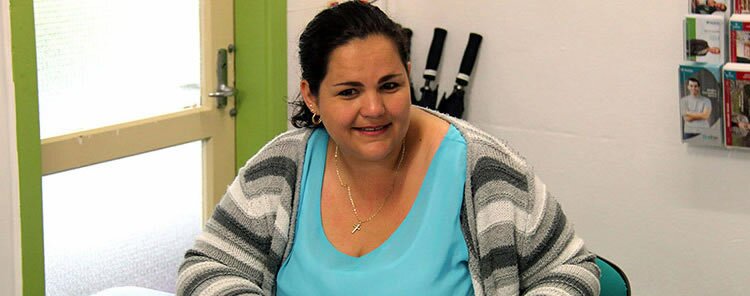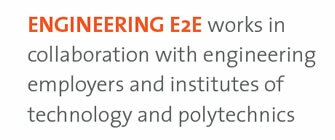INDUSTRY/EDUCATION LINKS CASE STUDY
Who better to teach engineering students than industry experts? A joint industry – ITP – stakeholder tutoring programme

In this case study Mike Mullany, Head Tutor of NorthTec's NZDE (Civil), talks about the collaborative tutoring programme he set up. 8 out 10 tutors are specialists employed in the engineering industry, giving students a fantastic learning experience and bringing industry and eduators closer together.
Who better to teach engineering students than industry experts working in the field? Mike Mullany, Principal Academic in Civil Engineering at NorthTec, knows just this. Mike needed tutors for NorthTec’s New Zealand Diploma in Engineering (Civil), and set up a programme where 8 of the 10 tutors are employees in the local engineering industry.
Mike saw the mutual benefits for both local industry and the ITP, and he wasn’t wrong. The tutoring programme is hugely successful. Mike holds a wealth of knowledge and advice for tertiary providers interested in doing the same thing, and we were lucky enough to tap into it.
So the tutoring programme for your NZDE (Civil) is made up of industry experts. Can you tell us a little more about how it works?
We have two full-time tutors; myself and Dave Murray. We teach all the papers in which we have time and the necessary skills, and contract in tutors from industry for the rest. This has two positive spin-offs: the engineering organisations buy into the diploma, and individuals are keen to represent their organisation and teach good skills and knowledge.
Contract tutors are monitored by our Quality Services, who run tutor evaluations with students. We also meet with them to get their feedback. I prepared a tutor procedures book which we circulate to all staff – this supports consistent quality of teaching.
What gave you the idea for the programme – and why did you want to pursue it?
 Our stakeholder organisations employ several of our students as Engineering Cadets. Both salaries and fees are paid by the organisation. We saw this approach as giving hard-paying firms a chance to give input to how we teach our students, and the emphasis on what we teach – within the rules of the Diploma.
Our stakeholder organisations employ several of our students as Engineering Cadets. Both salaries and fees are paid by the organisation. We saw this approach as giving hard-paying firms a chance to give input to how we teach our students, and the emphasis on what we teach – within the rules of the Diploma.
This approach is economic, builds relations with stakeholders and allows the great publicity angle that practicing engineers and other professionals are teaching our students! It also forms a useful first-contact for students who do not initially get cadetships. Employer representatives are teaching them, and can make recommendations if impressed.
All of our tutors are current members of IPENZ, so the local IPENZ branch has become very proactive in assisting with presentations, outings and other opportunities for students to get in touch with more experienced members of the profession.
So who are the tutors? How did you find and approach them?
 We list our tutors on our website – find out who they are here. They come from Opus International, Far North District Council, Cook Costello, Lands and Survey Ltd and Transfield Services.
We list our tutors on our website – find out who they are here. They come from Opus International, Far North District Council, Cook Costello, Lands and Survey Ltd and Transfield Services.
To find them, we initially approached both firms and IPENZ with the subjects that Dave and I could not cover. These firms asked their suitably qualified colleagues to contact us if interested, and they did!
What are the benefits of teaching the NZDE in this way?
There are many – over and above our students achieving academically. Others include:
- firms can give and receive input
- students are happy to have real, practicing experts teaching them
- schools are confident in advising students to progress to tertiary education with us
- NorthTec is happy at the increase in student numbers we’ve had as a result
Have there been many challenges?
I’m happy to report that there have been very few. NorthTec has been helpful and supportive. It supplied good services such as marketing and school liaison, which facilitated our job enormously.
Do you have any advice for tertiary providers or industry interested in setting up a similar programme?
Mike does, and it’s incredibly helpful! Have a read:
As an organisation, we have searched long and hard on how to start and perpetuate the scheme. Most of the advice we have applies to sustaining the programme in general. We suggest that you – organisation reading this – go for synergy: encouraging groups, managers and stake-holders to work together to make a whole worth more than the sum of its parts. In particular:
Schools: Show schools that you respect them as institutions, have a sensitivity for their position, are not out to entice students out of school early, etc. All too often institutions antagonise schools by criticising the lack of mathematical, language or other skills of their students, and for giving students poor advice when it comes to subject choices. Tempting students to leave school early to do NZDE is a no-no. Students will do better if they enter the NZDE with normal school termination at the end of year 13.
School students: Provided the above is properly addressed, schools are likely to give you limited access to their senior students. Use the opportunity to do presentations outlining how the NZDE or other qualification can help with a student’s career. Be clear on the pros and cons of doing the diploma against a full university degree. Don’t over-sell the NZDE as the ‘must do’ option for all students, rather discuss the strata of students who are likely to benefit most from a NZDE education as opposed to a full university BE. Definitely mention the option of stair-casing into a degree after completing the NZDE. We compiled a list of interested students and kept in touch via email and texting; and wished them all well just prior to their final exams. We remained in touch with the many who will start off at university but find that they aren’t coping – such students could be looking to the NZDE option next.
Your marketing department: Your institution almost certainly has a good marketing department with well-trained and experienced staff. However, they cannot advertise your courses without significant input from you. Work with them. Sit down and discuss issues and supply any technical/course-specific details which they cannot be expected to know. They then supply us with the most amazingly professional pamphlets, posters and adverts. As part of our Marketing Department we have a school Liaison Officer, whose job it is to keep the schools and polytechnic in the loop and advertise our offerings to both schools and pupils.
Your local stakeholders: Invite all engineering firms in your region to an annual stakeholders’ meeting. We do this over an evening finger-tea, which goes down very well. We also invite school students whose contacts we have obtained by this stage, to meet the stakeholders. Discuss options with the firms, such as class scheduling, cadet schemes, emphases they would like to see in the classroom and indeed any guest lecturer/contract tutors options. We find an annual meeting to be sufficient.
Your local IPENZ branch: Get involved with the local IPENZ branch. They are another source of guest/contract lecturers, and they will actively support you – especially if they see that you are providing a good qualification option. Permanent staff teaching for example, maths, may not be engineers. However, they may join IPENZ as affiliate members, and so can get to meetings and keep their finger on the pulse of engineering activities in the area. We find that our local branch also likes to be kept up-to-date with our progress in teaching their cadets/future employees.
Your institution: Sadly, many institutions have put good systems in place to help with the implementation of the above, but programmes use little if any of these resources on hand. These include your CEO/Director/line manager/senior management team; your operations/financial person/department; your Registry/resulting team; your Quality Assurance Team, ICT, Library, Marketing, and so on. At NorthTec I have found them all highly obliging and encouraging, and very ready to help. SMT, of course, need to be convinced that you are running a financially viable programme, or that you at least try to. It is vital to be economic. Also, programmes may believe in their academic content to the exclusion of business needs, such as the need for students. If you were to follow the above tips, I have every confidence that you will be seen to be economically prudent and viable.
If you would like more advice, or have any questions, email us at .
Huge thanks to Mike Mullany for his time and advice.
The advice and views expressed are Mike Mullany’s and may not represent those of NorthTec.
December 2014
 |
 |
 |
||
 |
||||
 |
||||
 |






